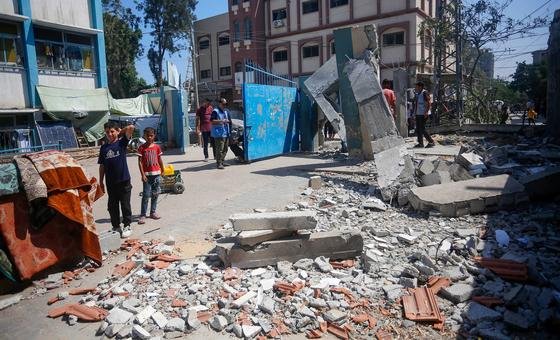The United Nations Children’s Fund – UNICEF says that around 6.25 lakh children have lost their school year since the war in Gaza began on October 7. Added to this number are 45,000 six-year-old children who are about to enroll in first grade. For them too, the fear of wasting their second year of school remains.
The future is at stake
Adel Khodra, UNICEF regional director for the Middle East and North Africa, said children in Gaza have been deprived of their homes, family members, friends, security and regular routine. “The safety and education offered by schools have also been taken away from them, putting their bright future at risk of being overshadowed by the horrors of this war.”
The war has greatly destroyed the educational infrastructure. Many schools run by UNRWA, the United Nations aid agency for Palestinian refugees, have also been destroyed or heavily damaged in the war.
The academic year is not over
UNICEF reports that in the Gaza Strip, due to the war that began in October (2023), almost every school has been damaged, with the last year of school education not completed, for the first time in decades. About 39,000 children are deprived of their last year of schooling.
For adolescent students, these barriers to learning far outweigh the lost opportunities.
A lack of schooling puts young people at risk of exploitation, including child labour, child marriage and other forms of abuse, UNICEF says. These children are at greater risk of being permanently excluded from school education.
For young children, lack of school means risk to their cognitive, social and emotional development. There are already reports of mental health and emotional effects in children, including increased depression and feelings of isolation.
Situation on the West Coast
According to UNICEF, children in the West Bank are also suffering as the school year begins. Since October (2023), escalating violence and movement restrictions have created new barriers to education for the nearly 782,000 children living there.
Between 8 and 20 percent of schools in the West Bank have been closed on any given day since October, citing data from the United Nations children’s agency, local education ministries and humanitarian aid agencies.
Even if schools are not closed, fear of violence, movement restrictions and mental health concerns prevent many children from attending school, harming their educational achievement.
Education should be resumed
UNICEF and its partners responded to the situation by setting up 39 temporary education centers in the Gaza Strip, where 12,400 students are receiving education. These educational centers are providing sports and recreational activities and means of mental and emotional support to children and adolescents as well as parents and teachers.
Adel Khodra said that in order to preserve the right to education of future generations in Palestine, we need to find ways to provide education and rebuild schools.
“Children need stability to recover from trauma and opportunities to develop to their full potential,” she said.

